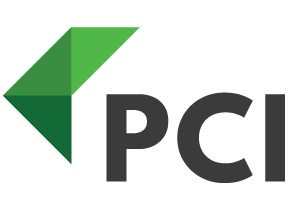Time is an invaluable resource, but learning to effectively manage your time can be a superpower.
Running a successful marketing agency requires impeccable time management skills, especially when juggling multiple clients’ unique demands and deadlines simultaneously. The ability to prioritize tasks, meet deadlines, and maintain a high level of productivity is crucial to providing exceptional service to your clients and the success of your agency.
This blog post will highlight various time management strategies when juggling multiple accounts.
- Prioritize and Organize
Start by working backward: what are the deadlines for each client? What deliverables are needed, and how long which each one take to develop? After understanding the unique needs of each client’s deadline, create a detailed schedule – working backward from the deadline – to ensure all deliverables and reviews happen on time. There are various project management tools on the market to assist in tracking assignments, deadlines, and progress that can help marketing agency teams organize their workflows and stay on top of their tasks.
- Set Realistic Expectations
Clear and consistent communication is key when managing multiple clients. Manage your client’s expectations by setting realistic deadlines and explaining the process of delivering quality work. Be clear and upfront about your progress and timelines by providing regular updates. Avoid overcommitting as it can lead to compromised quality and burnout.
- Delegate and Collaborate
There are account teams for a reason! Whether you are an account lead or support, identify what workload you can realistically take on, and communicate it to the rest of your team as soon as possible. From there, work with your account lead or larger team to identify which tasks can be delegated. Successful delegation helps to lighten your workload while fostering a sense of teamwork and development within your agency. It also provides an opportunity to assign tasks based on team members’ strengths and passions.
- Dedicate Specific Time for Each Client
One of the best ways to ensure you are spreading the love between your clients equally is setting dedicated time blocks for each account you work on. This can be dedicated days, or hours per day – find what works for your schedule and your team. By batching similar tasks together, you can optimize productivity and minimize the time and energy spent transitioning between different clients.
- Avoid Overcommitment
Clearly define and document project requirements in client and internal conversations from the beginning to minimize going over scope and over-promising. Resist taking on additional projects if they compromise the quality or delivery of existing client work. A measured approach to managing workload leads to better outcomes for both clients and your agency.
- Continuously Evaluate and Optimize
One size does not fit all – ensure you are regularly assessing and analyzing your time management strategies. Identify what is working and where you can improve, and always remember to get your full team’s input. You can even use time-tracking tools or techniques to understand how your team’s time is being utilized and identify areas where productivity can be enhanced. By adapting and refining your processes, you will better serve your clients and build a stronger team.
Balancing multiple clients in a marketing agency can be challenging, but with effective time management strategies, it is undoubtedly achievable. Through prioritization, effective communication, delegation, and thoughtful scheduling, you can provide top-notch service to each client while maintaining your sanity. And remember – it’s not just about managing time; it’s about managing expectations, fostering collaboration, and continuously optimizing your approach to deliver exceptional results.
Learn how WorkBook can help streamline your client tasks, contact us for a demo!
You Might Also Like:
- [On-Demand Webinars] View our portfolio of WorkBook on-demand webinars here.
- [Deltek WorkBook Customer Story] How OH Partners Improved Cash Flow, Efficiency, and Agency Visibility






